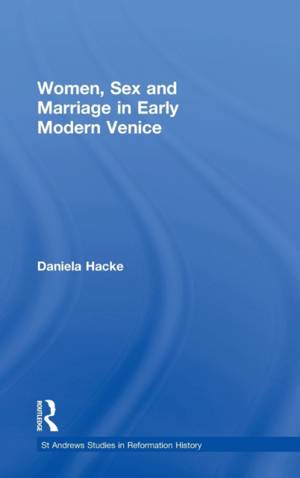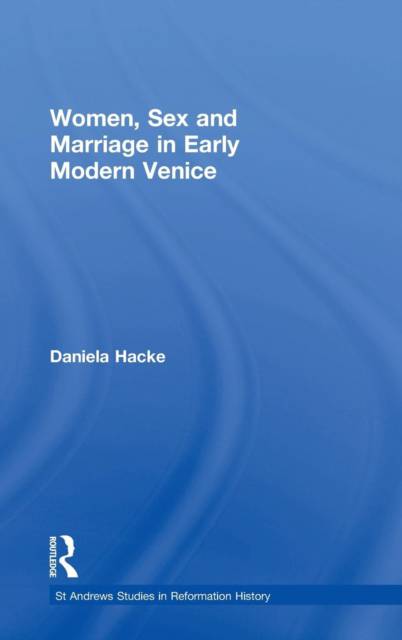
- Afhalen na 1 uur in een winkel met voorraad
- Gratis thuislevering in België vanaf € 30
- Ruim aanbod met 7 miljoen producten
- Afhalen na 1 uur in een winkel met voorraad
- Gratis thuislevering in België vanaf € 30
- Ruim aanbod met 7 miljoen producten
Zoeken
Omschrijving
Women, Sex, and Marriage in Early Modern Venice is the first study to investigate systematically the moral policies of both Church and State in the age of Counter-Reformation confessionalisation in Venice. Examining ecclesiastical and civil lawsuits related to illicit sex, broken marriage promises and disrupted marriages of artisan and ordinary women and men, Daniela Hacke can convincingly show how central sexual morality was to the patriarchal society of sixteenth and seventeenth century Venice. Drawing on a wide range of archival sources, the author skilfully reconstructs what gender difference meant in daily life, in courtship rituals, marital disputes, and in sexual relations. In the streets and in the courts, women and men fought not only over proper gender behaviour within and outside marriage, but also about the meaning of conjugality and of domestic patriarchy. Neighbours played an active role in mediating between distressed partners and between children and parents. Their interventions and perceptions reveal much about the moral values and the networks of support within a fascinatingly heterogeneous community such as early modern Venice. The study makes important contributions to the fields of gender history, social history and the history of crime and sexuality.
Specificaties
Betrokkenen
- Auteur(s):
- Uitgeverij:
Inhoud
- Aantal bladzijden:
- 282
- Taal:
- Engels
- Reeks:
Eigenschappen
- Productcode (EAN):
- 9780754607632
- Verschijningsdatum:
- 12/11/2004
- Uitvoering:
- Hardcover
- Formaat:
- Genaaid
- Afmetingen:
- 156 mm x 234 mm
- Gewicht:
- 576 g

Alleen bij Standaard Boekhandel
+ 580 punten op je klantenkaart van Standaard Boekhandel
Beoordelingen
We publiceren alleen reviews die voldoen aan de voorwaarden voor reviews. Bekijk onze voorwaarden voor reviews.








